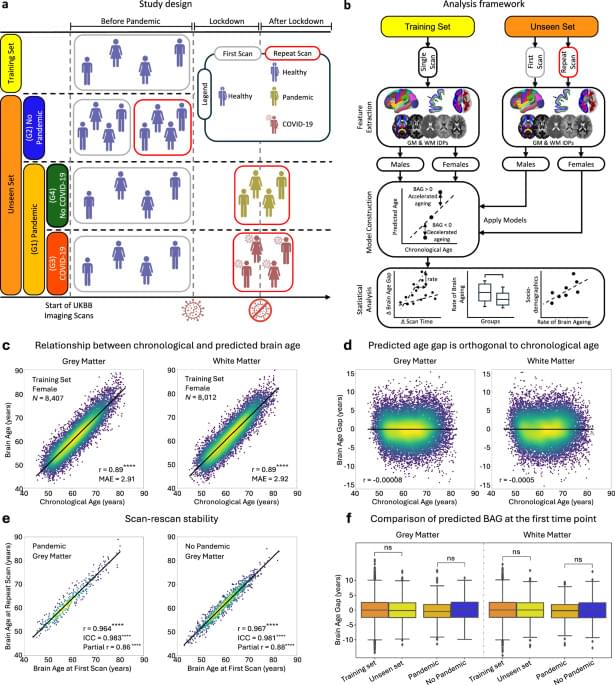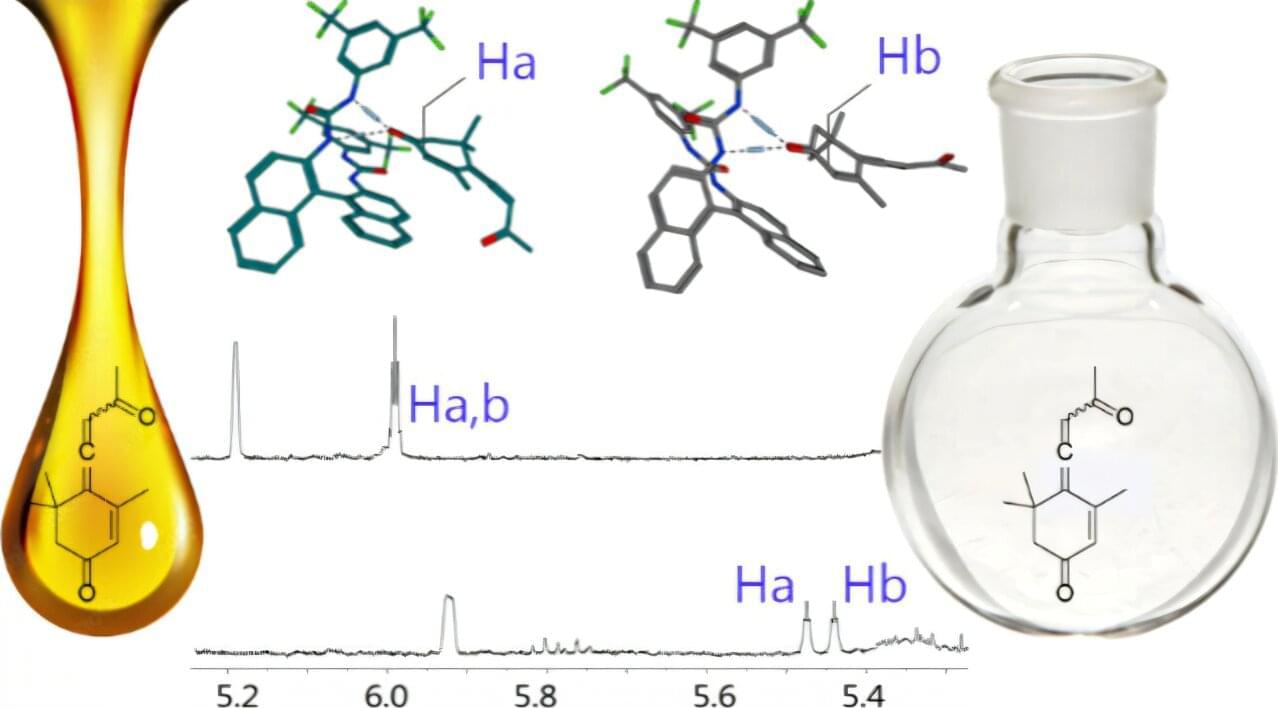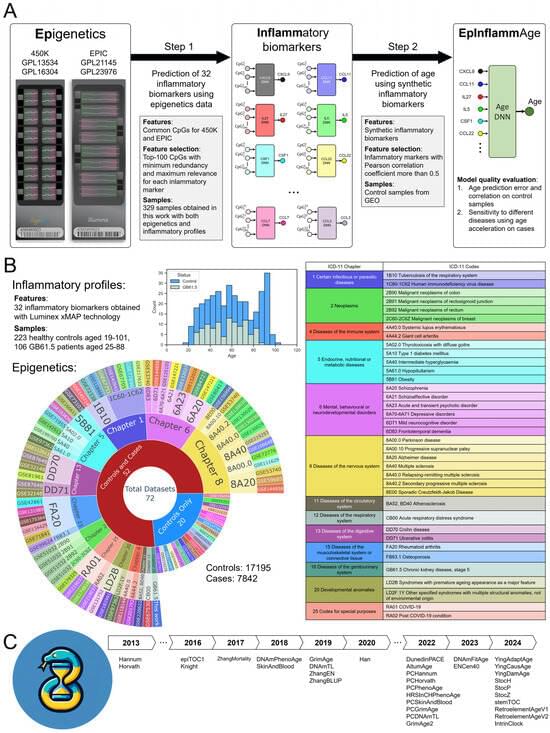This study shows that the COVID-19 pandemic accelerated brain ageing in UK adults, even without infection. The effect was stronger in older individuals, in men, and those from deprived backgrounds. Cognitive decline was seen only in those infected.



Researchers at the University of Chemistry and Technology, Prague have successfully developed a method to chemically synthesize callunene, a natural compound that protects bumblebees from a deadly gut parasite. In a recent discovery, the team also determined that the naturally occurring compound is a 50/50 mixture of its mirror-image forms, meaning the synthetic version can be used directly to safeguard vital pollinator colonies.
The study, published in the Journal of Natural Products, addresses the threat posed by the parasite Crithidia bombi. This protozoan infects bumblebees, impairing their ability to find nectar-rich flowers, which ultimately leads to starvation, reduced colony fitness, and death. The problem is especially acute in commercial indoor farming operations that rely on healthy pollinator colonies. Not only because of the farming effectiveness, but also because parasites might be spread from indoor pollinators to wild colonies.
Nature provides a defense in the form of callunene, a compound found in the nectar of heather (Calluna vulgaris). Bumblebees that forage on heather are prophylactically protected from Crithidia infection. However, the loss of heathland habitats and the difficulty of isolating the compound from natural sources have made this solution impractical on a large scale.

New research published in Proceedings of the National Academy of Sciences (PNAS) finds that prolonged and/or repeated exposure to gamma-aminobutyric acid (GABA) anesthetic agents (sevoflurane, propofol) for infants in the first two months of life resulted in an accelerated maturation of brain electrical activity patterns evoked by visual stimuli when recorded at 2–5 months of age, compared to infants who did not have early general anesthesia exposure.
These findings may suggest the use of non-GABA-active anesthetics for the newborn age-range. To address such concerns, a large multicenter clinical trial (called TREX) is currently in progress using a combination of anesthetic agents in order to minimize exposure to GABA-active anesthetics.
The paper is the fourth in a series emerging from a prospective longitudinal study known as the General Anesthesia and Brain Activity (GABA) Study, led by researchers at Boston Children’s Hospital and Northeastern University.


Basically there are three meteorites in our solar system that may pass by earth but most likely far away from the earth. Even though this news site says it may hit earth I am not quite certain it will.
Asteroid 2025 OW, the size of a skyscraper, is tearing through space next week—and it’s coming perilously close to Earth. NASA says no impact risk this time, but astronomers are sounding the alarm: these cosmic flybys are more frequent and more dangerous than you think. See why we dodged disaster and what happens if luck runs out.
#asteroid #earth #wion.
About Channel:
WION The World is One News examines global issues with in-depth analysis. We provide much more than the news of the day. Our aim is to empower people to explore their world. With our Global headquarters in New Delhi, we bring you news on the hour, by the hour. We deliver information that is not biased. We are journalists who are neutral to the core and non-partisan when it comes to world politics. People are tired of biased reportage and we stand for a globalized united world. So for us, the World is truly One.

Artificial Intelligence (AI) is usually built with silicon chips and code. But scientists are now exploring something very different. In 2025, they are growing brain organoids, which are small, living structures made from human stem cells. These organoids act like simple versions of the human brain. They form real neural connections and send electrical signals. They even show signs of learning and memory.
By linking organoids with AI systems, researchers are beginning to explore new computational approaches. Recent studies have shown that organoids possess the ability to recognize speech, detect patterns, and respond to input. Living brain tissue may help create AI models that learn and adapt faster than traditional machines. Early results indicate that organoid-based systems could offer a more flexible and energy-efficient form of intelligence.
Brain Organoids and the Emergence of Organoid Intelligence.

Using mathematical analysis of patterns of human and animal cell behavior, scientists say they have developed a computer program that mimics the behavior of such cells in any part of the body. Led by investigators at Indiana University, Johns Hopkins Medicine, the University of Maryland School of Medicine and Oregon Health & Science University, the new work was designed to advance ways of testing and predicting biological processes, drug responses and other cell dynamics before undertaking more costly experiments with live cells.
With further work on the program, the researchers say it could eventually serve as a “digital twin” for testing any drug’s effect on cancer or other conditions, gene environment interactions during brain development, or any number of dynamic cellular molecular processes in people where such studies are not possible.
Funded primarily by the Jayne Koskinas Ted Giovanis Foundation and the National Institutes of Health, and leveraging prior knowledge and data funded by the Lustgarten Foundation and National Foundation for Cancer Research, the new study and examples of cell simulations are described online July 25 in the journal Cell.


We present EpInflammAge, an explainable deep learning tool that integrates epigenetic and inflammatory markers to create a highly accurate, disease-sensitive biological age predictor. This novel approach bridges two key hallmarks of aging—epigenetic alterations and immunosenescence. First, epigenetic and inflammatory data from the same participants was used for AI models predicting levels of 24 cytokines from blood DNA methylation. Second, open-source epigenetic data (25 thousand samples) was used for generating synthetic inflammatory biomarkers and training an age estimation model. Using state-of-the-art deep neural networks optimized for tabular data analysis, EpInflammAge achieves competitive performance metrics against 34 epigenetic clock models, including an overall mean absolute error of 7 years and a Pearson correlation coefficient of 0.85 in healthy controls, while demonstrating robust sensitivity across multiple disease categories. Explainable AI revealed the contribution of each feature to the age prediction. The sensitivity to multiple diseases due to combining inflammatory and epigenetic profiles is promising for both research and clinical applications. EpInflammAge is released as an easy-to-use web tool that generates the age estimates and levels of inflammatory parameters for methylation data, with the detailed report on the contribution of input variables to the model output for each sample.